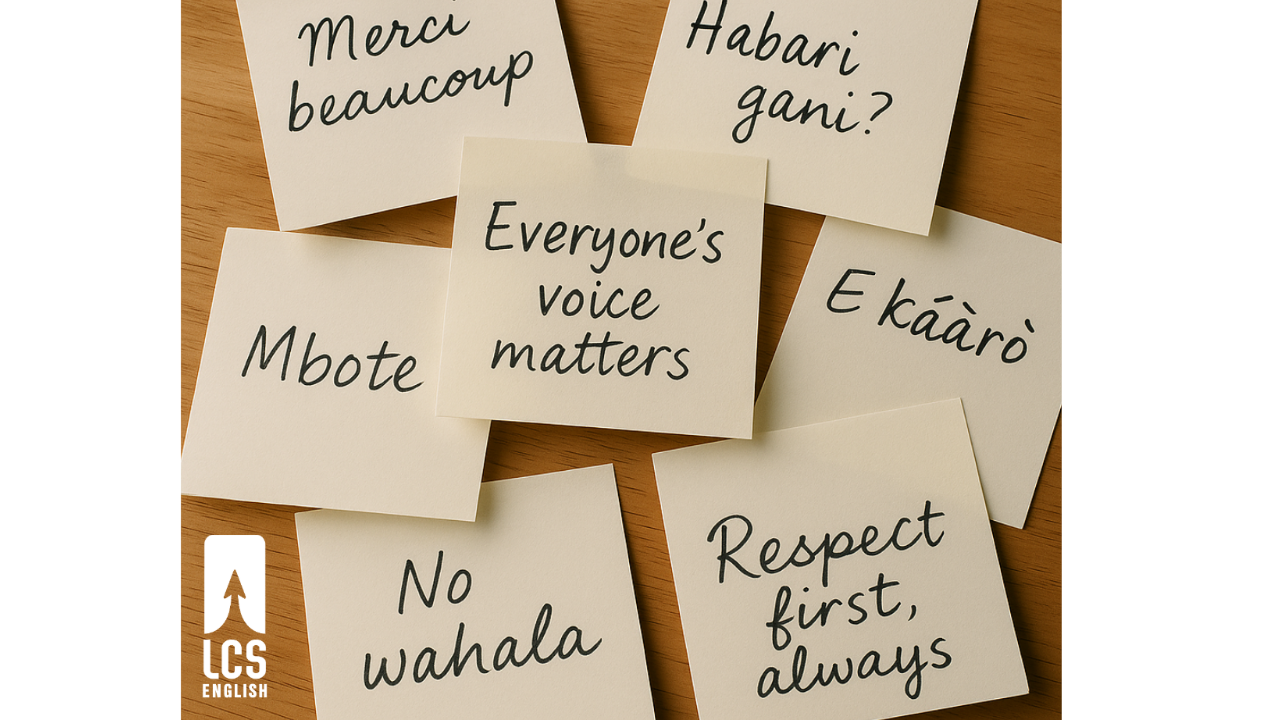What 28 Doctors Taught Me About Language, Respect — and Belonging
May 21, 2025
Reflections on My First English Class in South Africa
When I started teaching at Wits Language School, my very first class wasn’t what I expected.
It wasn’t a group of young learners or international students just out of university.
It was 28 medical doctors — mostly from the Democratic Republic of Congo, with a few from Nigeria — all working to improve their English so they could pass the HSRC exams and practise medicine in South Africa.
I was a little nervous at first. These were highly educated professionals with serious responsibilities. But any nerves I had quickly melted away. They were warm, engaging, funny — and we bonded almost instantly.
We shared stories, laughter and more than a few unforgettable moments.
One doctor from the DRC told me how touched he was that I’d greeted him in the corridor — before I even knew he would be one of my students. That small moment stayed with him and with me.
There were twin brothers from Nigeria who kept things light in class. I could just tell them apart and they liked to test me on that — always with a grin. Their energy was joyful and grounded the room.
We had a rhythm. A mutual respect. And we had fun.
When a class becomes a community
Soon, more doctors joined the programme and the class grew to 40 — too large for everyone to get the attention they deserved. The school made the decision to split the group in two.
That’s when things got tricky.
They didn’t want to leave my class. All of them wanted to stay.
It got so intense that the other teacher — a lovely and capable colleague — ended up in tears.
So, I called the doctors in for a chat. Not to scold, but to remind.
I told them I’d still be there if they needed support outside of class. But they had to give the new teacher a chance — to treat her with the same openness and respect they’d shown me.
They agreed.
That moment wasn’t about asserting authority. It was about honouring the trust we’d built — and using it to create space for someone else to succeed too.
Resetting the tone, gently
There was another student — a Nigerian doctor — who often tried to dominate the room. He had a habit of putting down his peers. He wasn’t cruel, just used to being heard more than others.
One day, after yet another interruption, I looked at him and said — very politely but firmly — that this class wasn’t a place for one-upmanship. Everyone’s voice mattered.
He looked surprised. But he listened. And after that, things shifted.
What that class taught me
That group of 28 doctors taught me more than I ever could have taught them.
They reminded me that language is about dignity. That how you treat people before you know their status, story or role matters.
They showed me how quickly connection can grow when respect is mutual — and how small gestures (a greeting, a smile, remembering someone’s name) can mean the world.
And they reminded me of something I’ve believed for a long time:
The strongest teaching moments often begin with empathy.
You just need to see the person behind the sentence.
Why I’m sharing this
In the spirit of Africa Day, I’m not writing about history, policy or politics.
I’m writing about people.
Because what happened in that classroom wasn’t just about English.
It was about voice, belonging, and being seen.
And to me, that’s what real learning is about.
